- Home
- Seanan McGuire
Down Among the Sticks and Bones Page 2
Down Among the Sticks and Bones Read online
Page 2
She took a taxi from the train station to the house, because of course picking her up would have been a disruption to an already-disrupted schedule. She rang the bell, because of course giving her a key would have made no sense at all. Her eyes lit up when Serena answered the door, a baby in each arm, and she didn’t even notice that her daughter-in-law’s hair was uncombed, or that there were stains on the collar of her blouse. The things Serena thought were most important in the world held no relevance to Louise. Her attention was focused entirely on the babies.
“There they are,” she said, as if the twins had been the subject of a global manhunt spanning years. She slipped in through the open door without waiting for an invitation, putting her suitcases down next to the umbrella stand (where they did not compliment the décor) before holding out her arms. “Come to Grandma,” she said.
Serena would normally have argued. Serena would normally have insisted on offering coffee, tea, a place to put her bags where no one would have to see them. Serena, like her husband, had not slept a full night since coming home from the hospital.
“Welcome to our home,” she said, and dumped both babies unceremoniously into Louise’s arms before turning and walking up the stairs. The slam of the bedroom door followed a second later.
Louise blinked. She looked down at the babies. They had left off crying for the moment and were looking at her with wide, curious eyes. Their world was as yet fairly limited, and everything about it was new. Their grandmother was the newest thing of all. Louise smiled.
“Hello, darlings,” she said. “I’m here now.”
She would not leave for another five years.
* * *
THE WOLCOTT HOUSE had been too big for Serena and Chester alone: they had rattled around in it like two teeth in a jar, only brushing against each other every so often. With two growing children and Chester’s mother in the mix, the same house seemed suddenly too small.
Chester told the people at his work that Louise was a nanny, hired from a reputable firm to assist Serena, who had been overwhelmed by the difficulty of meeting the needs of twins. He spun her not as an inexperienced first-time mother but as a doting parent who had simply needed an extra pair of hands to meet the needs of her children. (The idea that he might have been that extra pair of hands never seemed to arise.)
Serena told the people on her boards that Louise was her husband’s invalid mother, looking for a way to be useful while she recovered from her various non-contagious ailments. The twins were perfect angels, of course, she couldn’t wish for better or more tractable children, but Louise needed something to do, and so it only made sense to let her play babysitter for a short while. (The idea of telling the truth was simply untenable. It would be tantamount to admitting failure, and Wolcotts did not fail.)
Louise told stories to Jacqueline and Jillian, told them they were clever, they were strong, they were miracles. She told them to sleep well and dry their eyes, and as they grew older, she told them to eat their vegetables and pick up their rooms, and always, always, she told them that she loved them. She told them that they were perfect exactly as they were, and that they would never need to change for anyone. She told them that they were going to change the world.
Gradually, Chester and Serena learned to tell their own daughters apart. Jacqueline had been the first born, and that seemed to have taken up all of her bravery; she was the more delicate of the two, hanging back and allowing her sister to go ahead of her. She was the first to learn to be afraid of the dark and start demanding a nightlight. She was the last to be weaned off the bottle, and she continued sucking her thumb long after Jillian had stopped.
Jillian, on the other hand, seemed to have been born with a deficit of common sense. There was no risk she wouldn’t throw herself bodily against, from the stairs to the stove to the basement door. She had started walking with the abruptness of some children, going through none of the warning stages, and Louise had spent an afternoon chasing her around the house, padding the corners of the furniture, while Jacqueline had been lying comfortably in a sunbeam, oblivious to the danger her sister was courting.
(Serena and Chester had been furious when they came home from their daily distractions to find that all of their elegant, carefully chosen furniture now bore soft, spongy corners. It had taken Louise asking how many eyes they would like their daughters to have between them to convince them they should allow the childproofing to remain in place, at least for the time being.)
Unfortunately, with recognition came relegation. Identical twins were unsettling to much of the population: dressing them in matching outfits and treating them as one interchangeable being might seem appealing while they were young enough, but as they aged, they would start to unnerve people. Girls, especially, were subject to being viewed as alien or wrong when they seemed too alike. Blame science fiction, blame John Wyndham and Stephen King and Ira Levin. The fact remained that they needed to distinguish their daughters.
Jillian was quicker, wilder, more rough-and-tumble. Serena took her to the salon and brought her home with a pixie cut. Chester took her to the department store and brought her home with designer jeans, running shoes, and a puffy jacket that seemed almost bulkier than she was. Jillian, who was on the verge of turning four and idolized her often-distant parents as only a child could, modeled her new clothes for her wide-eyed, envious sister, and didn’t think about what it meant for them to finally look different to people who weren’t each other, or Gemma Lou, who had been able to tell them apart from the first day that she held them in her arms.
Jacqueline was slower, tamer, more cautious. Chester gave Serena his credit card, and she took their daughter to a store straight out of a fairy tale, where every dress was layered like a wedding cake and covered in cascades of lace and bows and glittering buttons, where every shoe was patent leather, and how they shone. Jacqueline, who was smart enough to know when something was wrong, came home dressed like a storybook, and clung to her sister, and cried.
“What a little tomboy she is!” people gushed when they saw Jillian—and because Jillian was young enough for being a tomboy to be cute, and endearing, and desirable, rather than something to judge, Chester beamed with pride. He might not have a son, but there were soccer leagues for girls. There were ways for her to impress the partners. A tough daughter was better than a weak son any day.
“What a little princess she is!” people gushed when they saw Jacqueline—and because that was all she had ever wanted from a daughter, Serena demurred and hid her smile behind her hand, soaking in the praise. Jacqueline was perfect. She would grow up just like the little girls that had inspired Serena to want one of her own, only better, because they would make none of the errors that other, lesser parents made.
(The idea that perhaps she and Chester hadn’t made any errors in parenting because they hadn’t really been parenting at all never occurred to her. She was their mother. Louise was a nanny at best, and a bad influence at worst. Yes, things had been difficult before Louise arrived, but that was just because she was recovering from childbirth. She would have picked up the necessary tricks of the trade quickly, if not for Louise hogging all the glory. She would.)
The twins began attending a half-day preschool when they were four and a half. Old enough to behave themselves in public; old enough to begin making the right friends, establishing the right connections. Jillian, who was brave within the familiar confines of her home and terrified of everything outside it, cried when Louise got them ready for their first day. Jacqueline, who had an endlessly curious mind and hungered for more to learn than one house could contain, did not. She stood silent and stoic in her frilly pink dress with the matching shoes, watching as Gemma Lou soothed her sister.
The idea of being jealous didn’t occur to her. Jillian was getting more attention now, but she knew that meant that later, Gemma Lou would find an excuse to do something with just Jacqueline, something that would be just between them. Gemma Lou always knew when one twin was being l
eft out, and she always made an effort to make up for it, to prevent gaps from forming. “There will come a day when you’re all either of you has” was what she always said when one of them fussed about the other getting something. “Hold to that.”
So they went off to preschool, and they held to each other until Jillian’s fears were soothed away by the teacher, who had a pretty skirt and a pretty smile and smelled like vanilla. Then Jillian let go and ran off to play with a bunch of boys who had found a red rubber ball, while Jacqueline drifted into the corner occupied by girls whose pretty dresses were too tight to let them do more than stand around and admire one another.
They were all young. They were all shy. They stood in the corner like a flock of bright birds, and looked at each other out of the corners of their eyes, and watched as the louder, freer children rolled and tumbled on the floor, and if they were jealous, none of them said so.
But that night when she got home, Jacqueline kicked her dress under the bed, where it wouldn’t be found until long after she had outgrown it, while Jillian sat in the corner with her arms full of dolls and refused to speak to anyone, not even Gemma Lou. The world was changing. They didn’t like it.
They didn’t know how to make it stop.
* * *
ON JACQUELINE AND JILLIAN’S fifth birthday, they had a cake with three tiers, covered in pink and purple roses and edible glitter. They had a party in the backyard with a bouncy castle and a table covered in gifts, and all the kids from their preschool were invited, along with all the children whose parents worked at Chester’s firm, or served on one of Serena’s boards. Many of them were older than the twins and formed their own little knots in corners of the yard or even inside, where they wouldn’t have to listen to the younger children screaming.
Jillian loved having all her friends in her very own yard, where she knew the topography of the lawn and the location of all the sprinkler heads. She raced around like a wild thing, laughing and shrieking, and they raced with her, because that was how her friends had learned to play. Most of them were boys, too young to have learned about cooties and “no girls allowed.” Louise watched from the back porch, frowning a little. She knew how cruel children could be, and she knew how much of Jillian’s role was being forced upon her by her parents. In a year or two, the flow of things was going to change, and Jillian was going to find herself marooned.
Jacqueline held back, sticking close to Gemma, wary of getting dirt on her pretty dress, which had been chosen specifically for this event, and which she was under strict instructions to keep as clean as possible. She wasn’t sure why—Jillian got covered in mud all the time, and it always washed out, so why couldn’t they wash her dresses?—but she was sure there was a reason. There was always a reason, and it was never one her parents could explain to her.
Chester manned the barbecue, demonstrating his skill as a chef and a provider. Several of the partners were nearby, nursing beers and chatting about work. His chest felt like it was going to burst with pride. Here he was, the father in his own home, and there they were, the people he worked for, seeing how impressive his family was. He and Serena should have had children much sooner!
“Your daughter’s a real scrapper, eh, Wolcott?”
“She is indeed,” said Chester, flipping a burger. (The fact that he called people who did this for a living “burger-flippers” and looked down his nose at them was entirely lost on him, as it was on everyone around him.) “She’s going to be a spitfire when she gets a little older. We’re already looking into peewee soccer leagues. She’ll be an athlete when she grows up, just you wait and see.”
“My wife would kill me if I tried to put our daughter in a pair of pants and send her off to play with the boys,” said another partner, a wry chuckle in his voice. “You’re a lucky man. Having two at once was the way to go.”
“Absolutely,” said Chester, as if they had planned this all along.
“Who’s the old lady with your other daughter?” asked the first partner, nodding toward Louise. “Is that your nanny? She seems a little, well. Don’t you think she’s going to get tired, chasing two growing girls around all the time?”
“She’s doing very well with them so far,” said Chester.
“Well, keep an eye on her. You know what they say about old ladies: blink, and you’ll be taking care of her instead of her taking care of your kids.”
Chester flipped another burger, and said nothing at all.
On the other side of the yard, near the elegant, sugar-dusted cake, Serena moved in the center of a swarm of cooing society wives, and she had never felt more at home, or more like she was finally taking her proper place in the world. This had been the answer: children. Jacqueline and Jillian were unlocking the last of the doors that had stood between Serena and true social success—mostly Jacqueline, she felt, who was everything a young lady should be, quiet and sweet and increasingly polite with every year that passed. Why, some days she even forgot that Jillian was a girl, the contrast between them was so strong!
Some of the women she worked with were uncomfortable with the way she enforced Jacqueline’s boundaries—usually the women who called her daughter “Jack” and encouraged her to do things like hunt for eggs on wet grass, or pet strange dogs that would shed on her dresses, dirtying them. Serena sniffed at them and calmly, quietly began moving their names down the various guest lists she controlled, until some of them had dropped off entirely. Those who remained had caught on quickly, after that, and stopped saying anything that smacked of criticism. What good was an opinion if it meant losing your place in society? No. Better to keep your mouth closed and your options open, that was what Serena always said.
She looked around the yard, searching for Jacqueline. Jillian was easy to find: as always, she was at the center of the largest degree of distasteful chaos. Jacqueline was harder. Finally, Serena spotted her in Louise’s shadow, sticking close to her grandmother, as if the woman were the only person she trusted to protect her. Serena frowned.
The party was a success, as such things are reckoned: cake was eaten, presents were opened, bounces were bounced, two knees were skinned (belonging to two separate children), one dress was ruined, and one overexcited child failed to reach the bathroom before vomiting strawberry ice cream and vanilla cake all over the hall. When night fell, Jacqueline and Jillian were safely tucked in their room and Louise was in the kitchen, preparing herself a cup of tea. She heard footsteps behind her. She stopped, and turned, and frowned.
“Out with it,” she said. “You know how Jill fusses if I’m not in my room when she comes looking for midnight kisses.”
“Her name is Jillian, Mother, not Jill,” said Chester.
“So you say,” said Louise.
He sighed. “Please don’t make this more difficult than it has to be.”
“What, exactly?”
“We want to thank you for all the time you’ve spent helping with our children,” said Chester. “They were a handful in the beginning. But I think we have things under control now.”
Five is not where handfuls end, my boy, thought Louise. Aloud, she said, “Is that so?”
“Yes,” said Serena. “Thank you so much, for everything you’ve done. Don’t you think you deserve the chance to rest?”
“There’s nothing tiring about caring for children you love like your own,” said Louise, but she had already lost, and she knew it. She had done her best. She had tried to encourage both girls to be themselves, and not to adhere to the rigid roles their parents were sketching a little more elaborately with every year. She had tried to make sure they knew that there were a hundred, a thousand, a million different ways to be a girl, and that all of them were valid, and that neither of them was doing anything wrong. She had tried.
Whether she had succeeded or not was virtually beside the point, because here were her son and his wife, and now she was going to leave those precious children in the hands of people who had never taken the time to learn anything about the
m beyond the most narrow, superficial things. They didn’t know that Jillian was brave because she knew Jacqueline was always somewhere behind her with a careful plan for any situation that might arise. They didn’t know that Jacqueline was timid because she was amused by watching the world deal with her sister, and thought the view was better from outside the splash radius.
(They also didn’t know that Jacqueline was developing a slow terror of getting her hands dirty, thanks to them and their constant admonishments about protecting her dresses, which were too fancy by far for a child her age. They wouldn’t have cared if she’d told them.)
“Mother, please,” said Chester, and that was it: she’d lost.
Louise sighed. “When would you like me to go?” she asked.
“It would be best if you were gone when they woke up,” said Serena, and that was that.
Louise Wolcott slipped out of her granddaughters’ lives as easily as she had slipped into them, becoming a distant name that sent birthday cards and the occasional gift (most confiscated by her son and daughter-in-law), and was one more piece of final, irrefutable proof that adults, in the end, were not and never to be trusted. There were worse lessons for the girls to learn.
This one, at least, might have a chance to save their lives.
3
THEY GROW UP SO FAST
AGE SIX WAS KINDERGARTEN, where Jacqueline learned that little girls who wore frilly dresses every day were goody-goodies, not to be trusted, and Jillian learned that little girls who wore pants and ran around with the boys were weirdos and worse.
Age seven was first grade, where Jillian learned that she had cooties and smelled and no one wanted to play with her anyway, and Jacqueline learned that if she wanted people to like her, all she had to do was smile at them and say she liked their shoes.
Age eight was second grade, where Jacqueline learned that no one expected her to be smart if she was going to be pretty, and Jillian learned that everything about her was wrong, from the clothes she wore to the shows she watched.

 A Local Habitation
A Local Habitation One Salt Sea
One Salt Sea Beneath the Sugar Sky
Beneath the Sugar Sky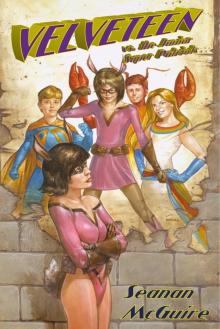 Velveteen vs. The Junior Super Patriots
Velveteen vs. The Junior Super Patriots The Girl in the Green Silk Gown
The Girl in the Green Silk Gown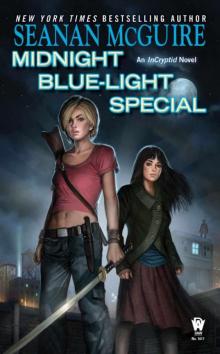 Midnight Blue-Light Special
Midnight Blue-Light Special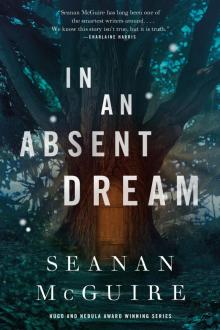 In an Absent Dream
In an Absent Dream Chaos Choreography
Chaos Choreography Indexing
Indexing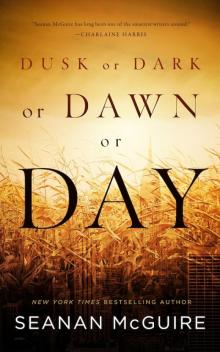 Dusk or Dark or Dawn or Day
Dusk or Dark or Dawn or Day Down Among the Sticks and Bones
Down Among the Sticks and Bones The Razor's Edge
The Razor's Edge Midway Relics and Dying Breeds
Midway Relics and Dying Breeds Pocket Apocalypse
Pocket Apocalypse The Brightest Fell
The Brightest Fell Discount Armageddon
Discount Armageddon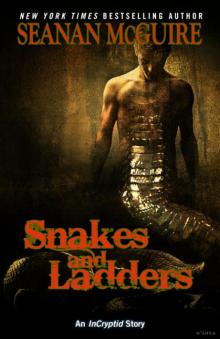 Snakes and Ladders
Snakes and Ladders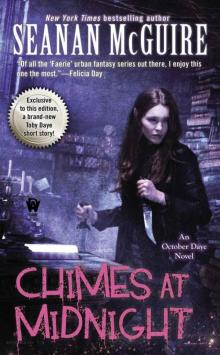 Chimes at Midnight
Chimes at Midnight Broken Paper Hearts
Broken Paper Hearts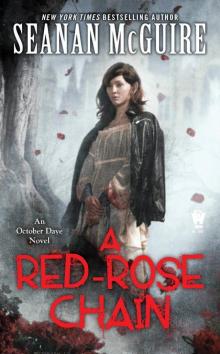 A Red-Rose Chain
A Red-Rose Chain Married in Green
Married in Green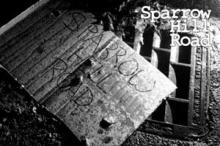 Sparrow Hill Road 2010 By Seanan
Sparrow Hill Road 2010 By Seanan Calculated Risks
Calculated Risks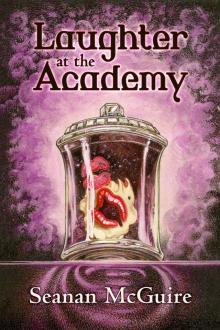 Laughter at the Academy
Laughter at the Academy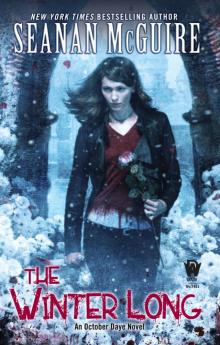 The Winter Long
The Winter Long We Both Go Down Together
We Both Go Down Together Half-Off Ragnarok
Half-Off Ragnarok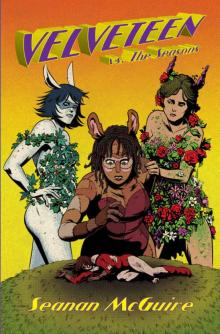 Velveteen vs. The Seasons
Velveteen vs. The Seasons Boneyard
Boneyard A Killing Frost
A Killing Frost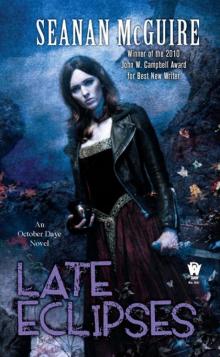 Late Eclipses
Late Eclipses Submerged
Submerged Blocked
Blocked Velveteen vs. The Multiverse
Velveteen vs. The Multiverse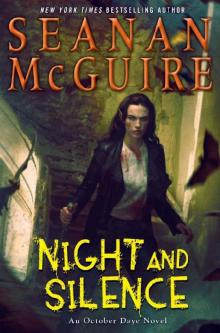 Night and Silence
Night and Silence The Unkindest Tide (October Daye)
The Unkindest Tide (October Daye) Come Tumbling Down (Wayward Children)
Come Tumbling Down (Wayward Children) Snake in the Glass
Snake in the Glass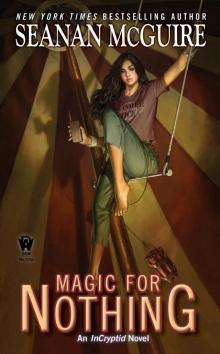 Magic for Nothing
Magic for Nothing Full of Briars
Full of Briars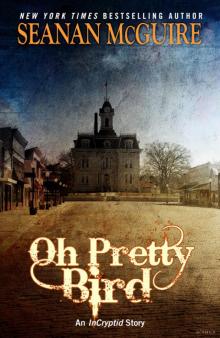 Oh Pretty Bird
Oh Pretty Bird The First Fall
The First Fall Once Broken Faith
Once Broken Faith My Last Name
My Last Name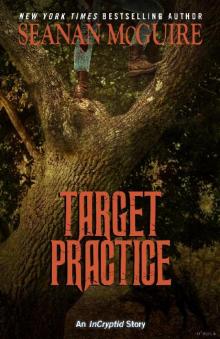 Target Practice
Target Practice Wayward Children 01 - Every Heart a Doorway
Wayward Children 01 - Every Heart a Doorway Sparrow Hill Road
Sparrow Hill Road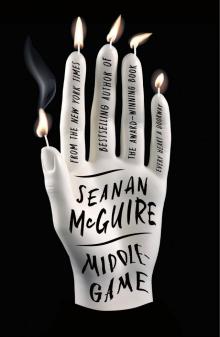 Middlegame
Middlegame Juice Like Wounds
Juice Like Wounds That Ain't Witchcraft
That Ain't Witchcraft Tricks for Free
Tricks for Free Imaginary Numbers
Imaginary Numbers The Star of New Mexico
The Star of New Mexico Lay of the Land
Lay of the Land One Hell of a Ride
One Hell of a Ride Bury Me in Satin
Bury Me in Satin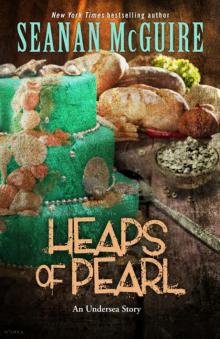 Heaps of Pearl
Heaps of Pearl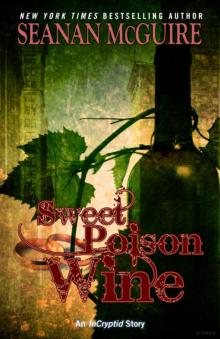 Sweet Poison Wine
Sweet Poison Wine When Sorrows Come
When Sorrows Come Every Heart a Doorway
Every Heart a Doorway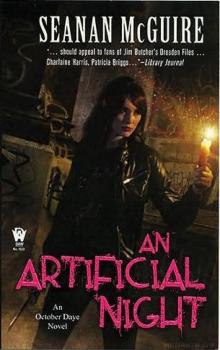 An Artificial Night - BK 3
An Artificial Night - BK 3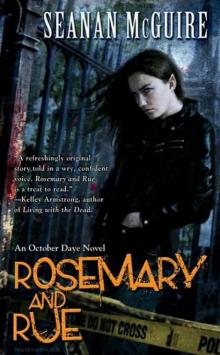 Rosemary and Rue
Rosemary and Rue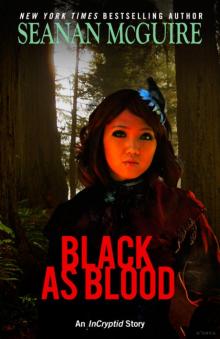 Black as Blood
Black as Blood Loch and Key
Loch and Key Discount Armageddon: An Incryptid Novel
Discount Armageddon: An Incryptid Novel The Unkindest Tide
The Unkindest Tide Ashes of Honor od-6
Ashes of Honor od-6 A Local Habitation od-2
A Local Habitation od-2 Waking Up in Vegas
Waking Up in Vegas The Ghosts of Bourbon Street
The Ghosts of Bourbon Street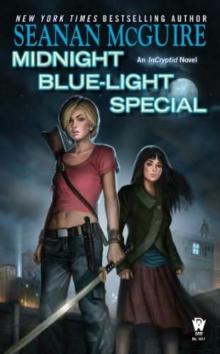 Midnight Blue-Light Special i-2
Midnight Blue-Light Special i-2 Bless Your Mechanical Heart
Bless Your Mechanical Heart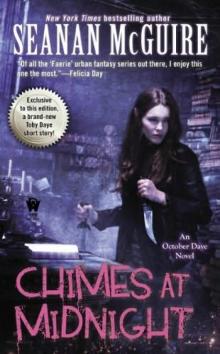 Chimes at Midnight od-7
Chimes at Midnight od-7 The Way Home
The Way Home Indexing (Kindle Serial)
Indexing (Kindle Serial) Pocket Apocalypse: InCryptid, Book Four
Pocket Apocalypse: InCryptid, Book Four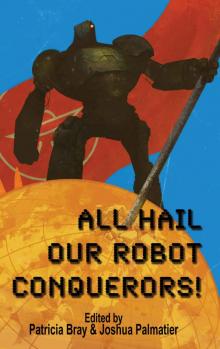 All Hail Our Robot Conquerors!
All Hail Our Robot Conquerors!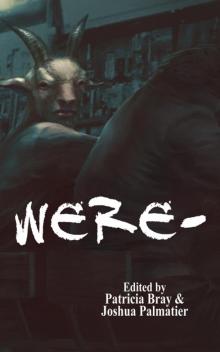 Were-
Were-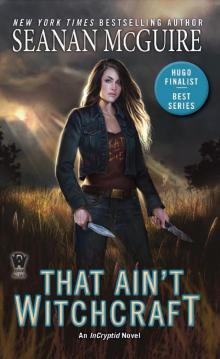 That Ain't Witchcraft (InCryptid #8)
That Ain't Witchcraft (InCryptid #8)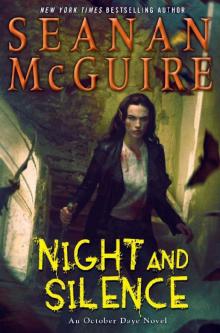 Night and Silence (October Daye)
Night and Silence (October Daye) Late Eclipses od-4
Late Eclipses od-4 Ashes of Honor: An October Daye Novel
Ashes of Honor: An October Daye Novel Midway Relics and Dying Breeds: A Tor.Com Original
Midway Relics and Dying Breeds: A Tor.Com Original Indexing: Reflections (Kindle Serials) (Indexing Series Book 2)
Indexing: Reflections (Kindle Serials) (Indexing Series Book 2)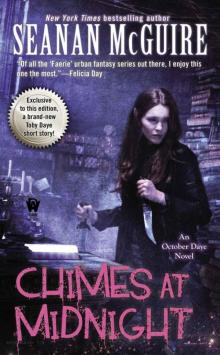 Chimes at Midnight: An October Daye Novel
Chimes at Midnight: An October Daye Novel One Salt Sea: An October Daye Novel
One Salt Sea: An October Daye Novel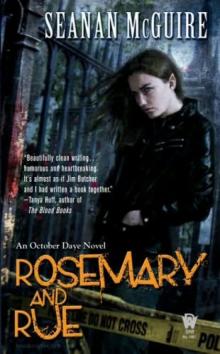 Rosemary and Rue od-1
Rosemary and Rue od-1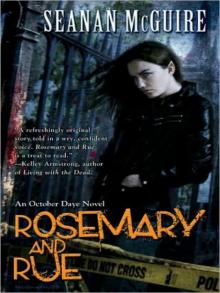 Rosemary and Rue: An October Daye Novel
Rosemary and Rue: An October Daye Novel Lightspeed Magazine Issue 49
Lightspeed Magazine Issue 49 Alien Artifacts
Alien Artifacts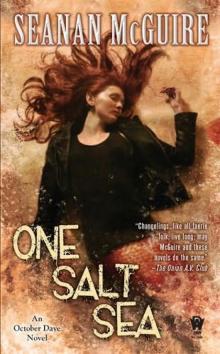 One Salt Sea od-5
One Salt Sea od-5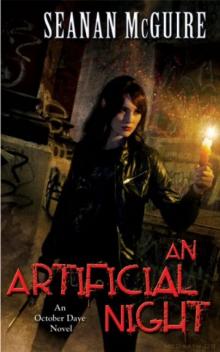 An Artificial Night od-3
An Artificial Night od-3 Discount Armageddon i-1
Discount Armageddon i-1